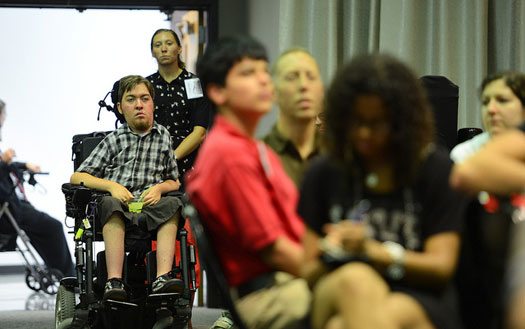
August 10, 2017; Washington Post
As news of a breakthrough in human gene editing coincided with the 27th anniversary of the Americans with Disabilities Act, which protects disabled Americans against discrimination, Rebecca Cokley, former executive director of the National Council on Disability, considered the implications. She wrote, “We cannot look at this ‘breakthrough’ without looking at the context.”
Writing for the Washington Post, she said that as someone with achondroplasia, “the most common form of dwarfism,” she is keenly aware that much of what able-bodied people hear as progress strikes fear in the hearts of disabled Americans: “the people whose genes would be edited.”
About one out of five U.S. residents has a disability, and Cokley sees the search for human genetic editing as a denial of her personhood. She wrote that it “says to disabled people: ‘We don’t want you here. We’re actively working to make sure that people like you don’t exist.”
She noted that much of the stigma of disability is viewed through the lens of cost; for example, she wrote,
Sign up for our free newsletters
Subscribe to NPQ's newsletters to have our top stories delivered directly to your inbox.
By signing up, you agree to our privacy policy and terms of use, and to receive messages from NPQ and our partners.
The media and society frame people with disabilities as takers, beggars and unworthy cost drivers for the rest of the public. Most recently, The Post published an article on the costs associated with people receiving Social Security Disability payments. These portrayals contribute to the myth of the “Medicaid mama,” reminiscent of the damaging “welfare queen” rhetoric of the Reagan era.
As she reminds us, this line of thinking contributed to the eugenics movement of the 1920s.
She accused genetic engineering proponents of using vague language, “such as ‘prevention of disease,’” and asked, what exactly is a disease? To Cokley, one person’s “horrible genetic mutation” is another person’s culture. This ableism is compounded by the fact that people with disabilities are not part of the human genetic editing, or genetic engineering, conversation.
Cokley concluded that though disabled people ignite able-bodied people’s fear of the deviant, of imperfection, many disabled people don’t want to be fixed. They want their fight for equality to be as valid as the rights of other movements.—Cyndi Suarez











